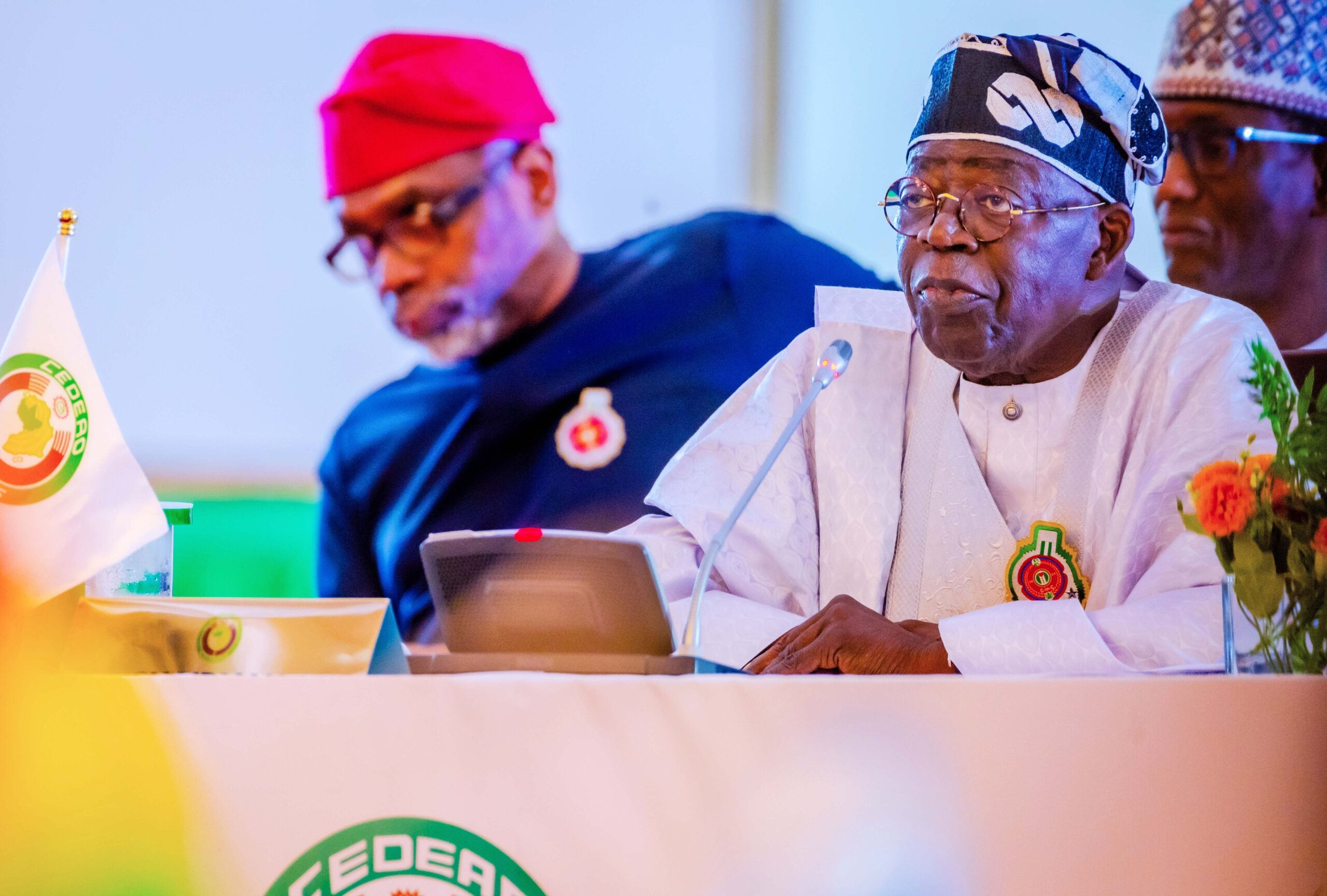In a region as complex and dynamic as West Africa, the recent political upheaval in Niger Republic presents a pivotal moment for Nigeria under President Bola Tinubu’s leadership. The way Nigeria has handled, or seemingly mishandled, this critical event has sparked significant debate, highlighting a perceived shift away from diplomatic engagement. This development carries considerable implications for Nigeria’s standing within the Economic Community of West African States (ECOWAS) and its broader strategic interests.
As a regional powerhouse, Nigeria has historically served as both a pillar of stability and a leading diplomatic actor in West Africa. Its dominance within ECOWAS is not just a matter of geography but stems from its substantial economic clout, military strength, and diplomatic influence. Thus, the coup in Niger Republic was a crucial test for President Tinubu’s administration, assessing its dedication to regional stability and its adeptness in diplomacy.
The perceived lack of timely action and ambiguity in Nigeria’s response have raised concerns and drawn criticism, questioning Nigeria’s capacity to effectively lead and shape the region, especially in moments of crisis.
The initial reluctance of Nigeria’s foreign ministry and national intelligence framework to present a decisive and unified position on the Niger coup represents a significant diplomatic misstep. This hesitancy or perceived indecision sends concerning signals to neighbouring countries and international allies, prompting doubts about Nigeria’s leadership capabilities and its influence over regional matters. The lack of a strong diplomatic stance has seemingly created a void, with consequences that stretch far and wide for the unity and future of ECOWAS.
- Court sets Mar 12 for 5 Fubara’s ‘loyalists’ hearing
- Nigeria will not harbour Cameroon separatists – Gov Otu
The threat by Mali, Niger and Burkina Faso, three member countries to leave ECOWAS following Nigeria’s tepid response to the Niger coup underscores the delicate nature of regional solidarity. It signifies a broader discontent and a crisis in confidence in the bloc’s leadership and conflict resolution mechanisms.
I think, such developments not only undermine ECOWAS but also reduce Nigeria’s stature and sway within the group. The potential disintegration or weakening coherence of ECOWAS directly challenges Nigeria’s long-time strategic interests, encompassing both economic and security dimensions.
Furthermore, the geopolitical implications of Nigeria’s posture, or the absence thereof, are profound, extending beyond the confines of ECOWAS. Russia’s willingness to deploy troops to Mali is a clear indicator of growing external interests and interventions in our region’s affairs. This situation should serve as a wake-up call for Nigeria and ECOWAS, indicating a possible shift in the security dynamics and foreign alignments within the region.
The engagement of external powers in West African affairs could complicate the security environment further, undermining Nigeria’s influence and potentially shifting the regional balance of power.
Given these circumstances, it is crucial for President Tinubu’s government to rethink its approach to the crisis in Niger and its wider regional diplomatic strategy. Nigeria needs to reassert its role as the leading diplomatic force in ECOWAS, prioritising dialogue with Niger’s military leaders and leading efforts to re-establish democratic principles and stability in the nation. Nigeria’s diplomatic actions should be proactive, straightforward, and uniform, reflecting its position as a regional powerhouse and advocate for democratic values.
Moreover, Nigeria must strive to repair the cracks within ECOWAS, pushing for unity, collaboration, and collective action to confront the region’s challenges. This involves not just diplomatic outreach but also a reevaluation of the conflict prevention and resolution strategies within ECOWAS. Enhancing these frameworks will build the bloc’s resilience and readiness to tackle crises, further solidifying Nigeria’s leadership role.
Comparatively, Nigeria’s Gross Domestic Product (GDP) and population size dwarf those of its West African neighbours, underscoring its pivotal role in the region. With the largest economy and population in West Africa, Nigeria’s GDP significantly surpasses that of any other ECOWAS member state, making it an economic juggernaut whose stability and policies have far-reaching implications for regional commerce, investment, and development initiatives.
Similarly, Nigeria’s population, constituting a substantial portion of the region’s total populace, amplifies its influence and responsibilities in fostering regional stability and development. These economic and demographic advantages not only highlight Nigeria’s potential as a regional leader but also underscore the importance of its diplomatic engagement and leadership in ensuring the prosperity and stability of West Africa. Nigeria must view the West African sub-region as its sphere of influence.
If Nigeria cannot command and control ECOWAS, where else can we demonstrate our prowess as the regional hegemon? I urge President Tinubu and Vice President Shettima to reconsider the sanctions on Niger Republic and engage them through diplomacy for the benefit of our region.
In conclusion, the coup in Niger Republic and Nigeria’s subsequent response have spotlighted the intricacies of regional politics and the critical role that diplomacy plays in addressing these challenges. Standing at a crossroads, President Tinubu’s administration has a unique opportunity to redefine Nigeria’s approach to foreign policy and regional diplomacy.
By adopting a more decisive, transparent, and diplomatic strategy, Nigeria can affirm its status as a stabilizing force and a champion of democratic governance in West Africa. This is vitally important not only for the stability and prosperity of the ECOWAS region but also for Nigeria’s strategic interests and its aspiration for a peaceful, integrated West African community.
Adam, Ph.D. wrote from Abuja

 Join Daily Trust WhatsApp Community For Quick Access To News and Happenings Around You.
Join Daily Trust WhatsApp Community For Quick Access To News and Happenings Around You.


